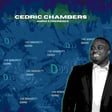
Becoming An Active Ally with Chikere Igbokwe
Join us for a thought-provoking episode of "The 3D Podcast", where we welcome Chikere Igbokwe, Founder of INCLUCIVE and Allyship. In this episode, you will discover the key insights and valuable lessons on what it takes to be an Active Ally in today's society. We delve into the complexities of Allyship and explore the ups and downs of this crucial topic. Expect to gain a deeper understanding of what leaders need to do to effectively navigate Allyship within their organization as well. Get ready to be inspired and jot down some invaluable takeaways as we embark on a journey to 'Discuss the Dimensions of Diversity' with Chikere.
Feel free to subscribe, comment and like.👍
-----------------------------------------------------------------------
INSTAGRAM: https://www.instagram.com/cedricempowers
TWITTER: https://twitter.om/cedricempowers
